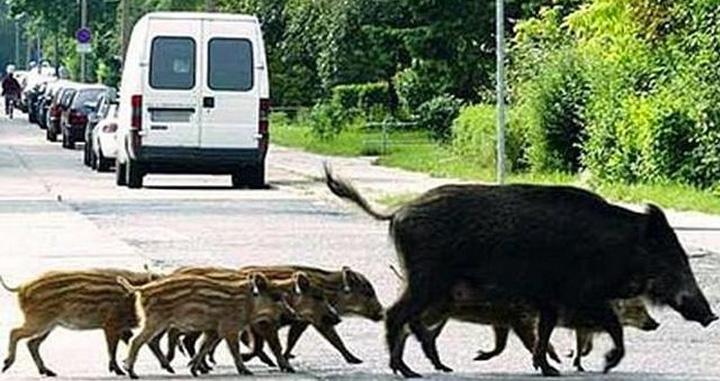During the summer it is normal to see wild boars, especially in high areas of Barcelona. In fact, at this time of the year, wild boars proliferate in the city as they can easily find food in urban areas.
However, these animals are already considered a global pest that is becoming increasingly urban.
And for the management of this species, at the beginning of September 2022, more than 200 scientists and technical experts in wild boar management met in the municipality of Seva (Barcelona).
Participants from 25 countries gathered at the 13th International Symposium on these animals and other swine.
The meeting was held in the Montseny Biosphere Reserve and the theme was the challenge of controlling the growth of wild boar populations.
They also discussed the impacts of this species on the socioeconomic level and on the biodiversity of a region.
Wild boars proliferate in Barcelona: a global and urban plague
Scientists gathered at the symposium called the attention of local administrations to take urgent measures to manage the overpopulation of feral pigs.
All in order to avoid aggravating the problems they can cause in cities and even in public health issues.
They were labeled as a “global plague” that crosses the borders of Catalonia. They have been detected in Rome, Hanover, Flanders and southern states of the United States.
There, they caused damage in cities, in fields, road accidents and even attacks on other animals and several people.
The management of this species has become a scientific, social and political challenge.
Why did the wild boar population increase?
There are several causes. Among the most significant are the lack of natural predators and easy access to food by these animals.
In the case of Catalonia, the wild boar population has doubled in 20 years.
So far, the only effective method of control is selective hunting, which has so far yielded some 67,000 specimens killed per year.
The production of a sterilizing vaccine is still awaited. In this regard, the Universitat Autònoma de Barcelona, UAB, together with the Diputació, is testing contraceptive vaccines.
Experts indicate that effective results could only be obtained in five or six years due to the tests and follow-up that must be carried out on any young specimens that are successfully vaccinated.
It is estimated that there are around 200,000 specimens in the area, a figure similar to the number of people living in a city like Sabadell.
The symposium also called for more research and financial support to invest in crop protection methods, measures to avoid collisions with vehicles and to reduce the access of these animals to garbage or pet food.

